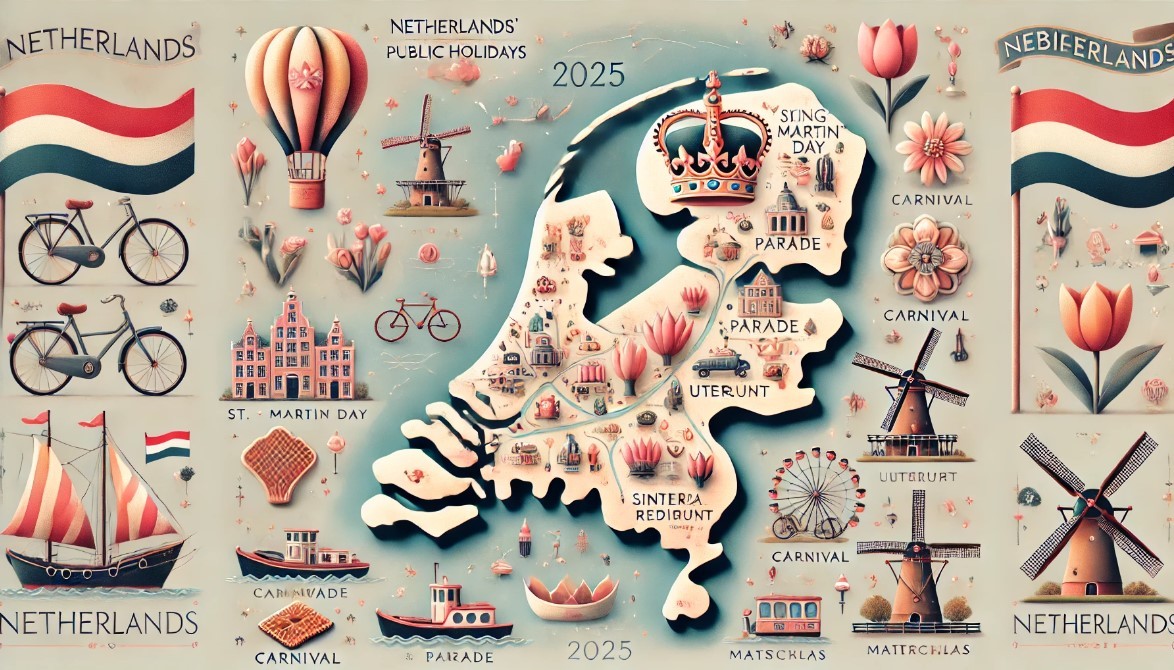Netherlands National Anthem: Lyrics in Dutch & English and Oldest Anthem In The World
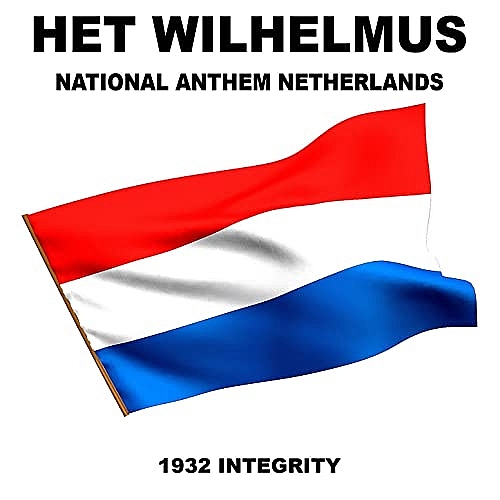 |
| What Is National Anthem Of Netherlands: History, Oldest Anthem In The World. Photo amazon |
Oldest national anthem in the world
The official Dutch national anthem is the Wilhelmus.
The Wilhelmus was officially adopted as the national anthem in 1932, but it was written between 1569 and 1572. This makes it the oldest national anthem in the world.
Who is the author?
Lord Philips of Marnix and Saint-Aldegonde, poet and diplomat, penned the Wilhelmus. A total of 15 verses make up the Wilhelmus. Only the first and sixth verses are typically sung. Willem van Nassov is spelled out in its entirety by the first letters of each verse.
The tune of the Wilhelmus was composed in 1568, when the French city of Chartres was under siege. Today's rendition of the tune was first published in Adriaen Valerius's Nederlandtsche Gedenck-clanck (1626). There are 15 verses in the Wilhelmus, and when put together their initials spell out WILLEM VAN NASSOV (William of Nassau). Throughout the eighteenth century, it was adopted as the anthem of the House of Orange's adherents, the Orangists, though it was not yet the national anthem.
| The word "Duitsen" in the second line of the first verse is another point of contention over the anthem. William's birthplace is in what is now Germany, hence the name "German." Nevertheless, Germany as a nation would not exist for another 300 years (the area would still be known as the "Holy Roman Empire"). The term "Duits" now universally refers to "German" alone in contemporary Dutch. Some have taken it to mean "of the people," which would make it more broadly applicable to the Dutch population. This site prefers the translation "Germanic," but the original lyrics read "van Duytschen bloet," with "Duytschen" referring not to Germany (since no such nation existed at the time), but to the lowlands area, which includes the modern-day Netherlands and certain areas of Germany, and was also where William of Orange was born. Maybe "Germanic" is the best contemporary term to describe the original meaning and implied region. |
Deciphering the lyrics of the Dutch national anthem
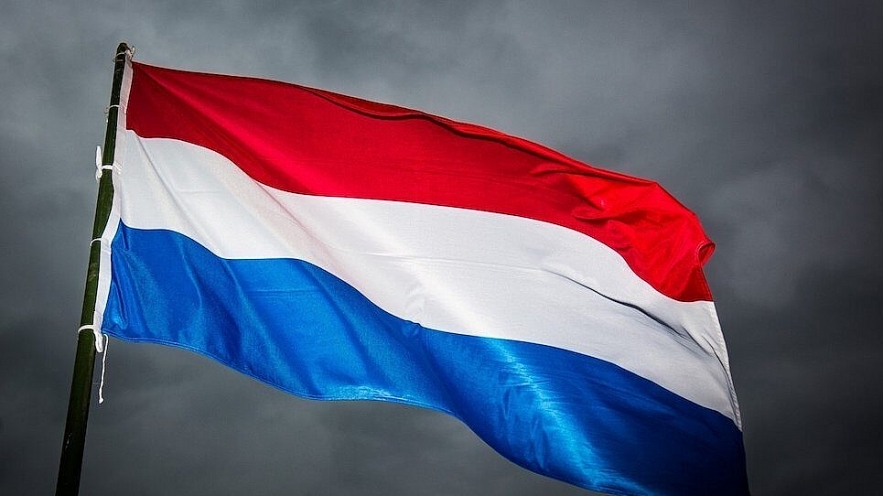 |
| Photo easy Dutch info |
In the 18th century, when the Wilhelmus was originally performed, no words were used. The song eventually developed into a marching melody known as the Prinsenmars and was performed primarily on trumpet and carillon. The Wilhelmus was one of the most often sung hymns at the time, despite the fact that few people were familiar with the words.
The first letters of each of the hymn's fifteen couplets spell out the name Willem van Nassou. This song is sung in William of Orange's voice and is composed from his point of view. The only catch is, nobody has ever heard him perform the song, so we can't be sure. The hymn reveals the internal turmoil plaguing William of Orange. Though he has dual loyalties to King Philip II of Spain, he also desires to serve God and to be the leader of his people in their struggle against injustice.
The first and second stanzas read:
William of Nassau
am I, of German blood.
Loyal to the fatherland
I will remain until I die.
A prince of Orange
am I, free and fearless.
The king of Spain
I have always honoured.
To live in fear of God
I have always attempted.
Because of this, I was ousted
bereft of my land and my people.
But God will direct me
like a good instrument.
So that I may returnto my domain.
The heart of the hymn still remains:
Like David, who was forced to flee
from Saul, the tyrant.
I had to sigh,
as did many other nobles.
But God raised him,
relieving him of despair,
and gave him a kingdom
very great in Israel.
Lyrics of the Wilhelmus (in Dutch)
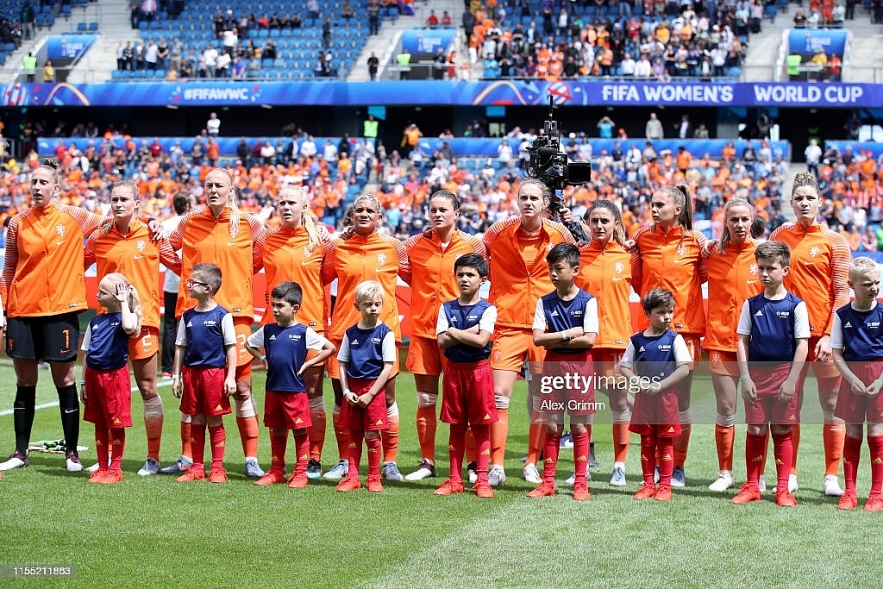 |
| Photo Getty |
The first known reference to the lyrics dates from 1572. The words are generally attributed to Philip van Marnix, Seigneur of Sint Aldegonde, secretary to William of Orange.
Wilhelmus van Nassouwe
Ben ick van Duytschen Bloedt,
Den Vaderland ghetrouwe
Blijf ick tot inden doet;
Een Prince van Orangien
Ben ick vry onverveert.
Den Coninck van Hispangien.
Heb ick altijt gheeert.
In Godes vrees te leven
Heb ick altijt betracht,
Daerom ben ick verdreven
Om Land, om Luyd ghebracht:
Maer Godt sal my regeren
Als een goet Instrument,
Dat ick sal wederkeeren
In mijnen Regiment.
Lijdt U, mijn Ondersaten,
Die oprecht zijn van aert,
Godt sal u niet verlaten
Al zijt ghy nu beswaert:
Die vroom begheert te leven,
Bidt Godt nacht ende dach.
Dat Hy my cracht wil gheven
Dat ick u helpen mach.
Lijf ende goed al te samen
Heb ick u niet verschoont,
Mijn Broeders, hooch van Namen,
Hebbent u oock vertoont:
Graef Adolff is ghebleven,
In Vrieslandt in den Slach,
Sijn siel int eewich leven
Verwacht den jonghsten dach.
Edel en Hooch gheboren
Van Keyserlicken stam:
Een Vorst des Rijcks vercoren,
Als een vroom Christen-man,
Voor Godes Woort ghepreesen,
Heb ick vrij onversaecht,
Als een helt zonder vreesen
Mijn edel bloet gewaecht.
Mijn schilt ende betrouwen
Zijt ghy, O Godt, mijn Heer.
Op U soo wil ick bouwen,
Verlaet my nimmermeer;
Dat ick doch vroom mag blijven
U dienaer t'aller stond
Die tyranny verdrijven,
Die my mijn hert doorwondt.
Val al die my beswaren,
End mijn vervolghers zijn,
Mijn Godt wilt doch bewaren
Den trouwen dienaer dijn:
Dat sy my niet verasschen
In haeren boosen moet,
Haer handen niet en wasschen
In mijn onschuldich bloet.
Als David moeste vluchten
Voor Saul den tyran:
Soo heb ick moeten suchten
Met menich edelman:
Maer Godt heeft hem verheven,
Verlost uit alder noot,
Een Coninckrijck ghegheven
In Israël, seer groot.
Na tsuer sal ick ontfanghen
Van Godt, mijn Heer, dat soet,
Daer na so doet verlanghen
Mijn vorstelick ghemoet,
Dat is, dat ick mag sterven
Met eeren, in dat velt,
Een eeuwich rijk verwerven
Als een ghetrouwe helt.
Niets doet my meer erbarmen
In mijnen wederspoet,
Dan dat men siet verarmen
Des Conincks landen goet,
Dat ud de Spaengiaerts crencken,
O edel Neerlandt soet,
Als ick daeraen ghedencke,
Mijn edel hert dat bloet.
Als een Prins opgheseten
Met mijnes heyres cracht,
Van den tyran vermeten
Heb ick den slach verwacht,
Die, by Maestricht begraven,
Bevreesde mijn ghewelt;
Mijn ruyters sach men draven
Seer moedich door dat velt.
Soo het den wil des Heeren
Op die tijt had gheweest,
Had ick geern willen keeren
Van u dit swaer tempeest:
Maer de Heer van hier boven
Die alle dinck regeert,
Die men altijt moet loven,
En heeftet niet begeert.
Seer christlick was ghedreven
Mijn princelick ghemoet,
Stantvastich is ghebleven
Mijn hert in teghenspoet,
Den Heer heb ick ghebeden
Van mijnes herten gront,
Dat Hy mijn saeck wil reden,
Mijn onschult doen oircont.
Oorlof mijn arme schapen,
Die zijt in grooten noot.
U Herder sal niet slapen,
Al zijt ghy nu verstroit:
Tot Godt wilt u begheven,
Sijn heylsaem woort neemt aen,
Als vrome Christen leven,
Tsal hier haest zijn ghedaen.
Voor Godt wil ick belijden
End sijner grooter macht,
Dat ick tot gheenen tijden
Den Coninck heb veracht:
Dan dat ick Godt den Heere,
Der hoochster Majesteyt,
Heb moeten obedieren,
In der gherechticheyt.
Translation of the lyrics of the Wilhelmus
William of Nassau, scion
Of a Dutch and ancient line,
I dedicate undying
Faith to this land of mine.
A prince I am, undaunted,
Of Orange, ever free,
To the king of Spain I've granted
A lifelong loyalty.
I 've ever tried to live in
The fear of God's command
And therefore I've been driven
From people, home, and land,
But God, I trust, will rate me
His willing instrument
And one day reinstate me
Into my government.
Let no despair betray you,
My subjects true and good.
The Lord will surely stay you
Though now you are pursued.
He who would live devoutly
Must pray God day and night
To throw His power about me
As champion of your right.
Life and my all for others,
I sacrificed, for you!
And my illustrious brothers
Proved their devotion too.
Count Adolf, more's the pity,
Fell in the Frisian fray,
And in the eternal city
Awaits the judgement day.
I, nobly born, descended
From an imperial stock.
An empire's prince, defended
(Braving the battle's shock
Heroically and fearless
As pious Christian ought)
With my life's blood the peerless
Gospel of God our Lord.
A shield and my reliance,
O God, Thou ever wert.
I'll trust unto Thy guidance.
O leave me not ungirt.
That I may stay a pious
Servant of Thine for aye
And drive the plagues that try us
And tyranny away.
My God, I pray thee, save me
From all who do pursue
And threaten to enslave me,
Thy trusted servant true.
O Father, do not sanction
Their wicked, foul design,
Don't let them wash their hands in
This guiltless blood of mine.
O David, thou soughtest shelter
From King Saul's tyranny.
Even so I fled this welter
And many a lord with me.
But God the Lord did save him
From exile and its hell
And, in His mercy, gave him
A realm in Israel.
Fear not 't will rain sans ceasing
The clouds are bound to part.
I bide that sight so pleasing
Unto my princely heart,
Which is that I with honour
Encounter death in war,
And meet in heaven my Donor,
His faithful warrior.
Nothing so moves my pity
As seeing through these lands,
Field, village, town and city
Pillaged by roving hands.
O that the Spaniards rape thee,
My Netherlands so sweet,
The thought of that does grip me
Causing my heart to bleed.
Astride on steed of mettle
I've waited with my host
The tyrant's call to battle,
Who durst not do his boast.
For, near Maastricht ensconced,
He feared the force I wield.
My horsemen saw one bounce it
Bravely across the field.
Surely, if God had willed it,
When that fierce tempest blew,
My power would have stilled it,
Or turned its blast from you.
But He who dwells in heaven,
Whence all our blessings flow,
For which aye praise be given,
Did not desire it so.
Steadfast my heart remaineth
In my adversity
My princely courage straineth
All nerves to live and be.
I've prayed the Lord my Master
With fervid heart and tense
To save me from disaster
And prove my innocence.
Alas! my flock. To sever
Is hard on us. Farewell.
Your Shepherd wakes, wherever
Dispersed you may dwell,
Pray God that He may ease you.
His gospel be your cure.
Walk in the steps of Jesu
This life will not endure.
Unto the Lord His power
I do confession make
That ne'er at any hour
Ill of the king I spake.
But unto God, the greatest
Of Majesties I owe
Obedience first and latest,
For Justice wills it so.
Why do the Dutch honour the Spanish king in their anthem?
From 1581 until 1714, Spain ruled the Netherlands and the rest of the Low Countries (which also included what are now modern-day Belgium and Luxembourg) as well as sections of Northern France and Western Germany.
In the Eighty Years' War, the Dutch rebelled against Spanish control under the leadership of William of Orange (also known as William the Silent, or Willem van Oranje in Dutch) (or the Dutch War of Independence, from 1568 to 1648).
Before the Eighty Years' War, both William of Orange and his father had served King Philip of Spain. William considered his primary duty as serving the people of the Low Countries, despite having sworn allegiance to the monarch. Even though he opposed "his" king (King Philip of Spain), he nevertheless held great awe and reverence for him as the monarch to whom he had sworn allegiance.
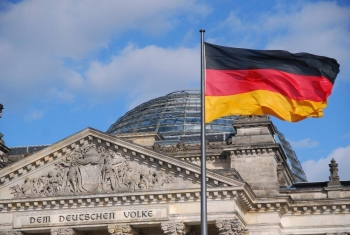 What Is The German National Anthem: Facts About Composer, History and Lyrics What Is The German National Anthem: Facts About Composer, History and Lyrics What is the national anthem of Germany? What should we learn from its history? Check out its full lyrics right below! |
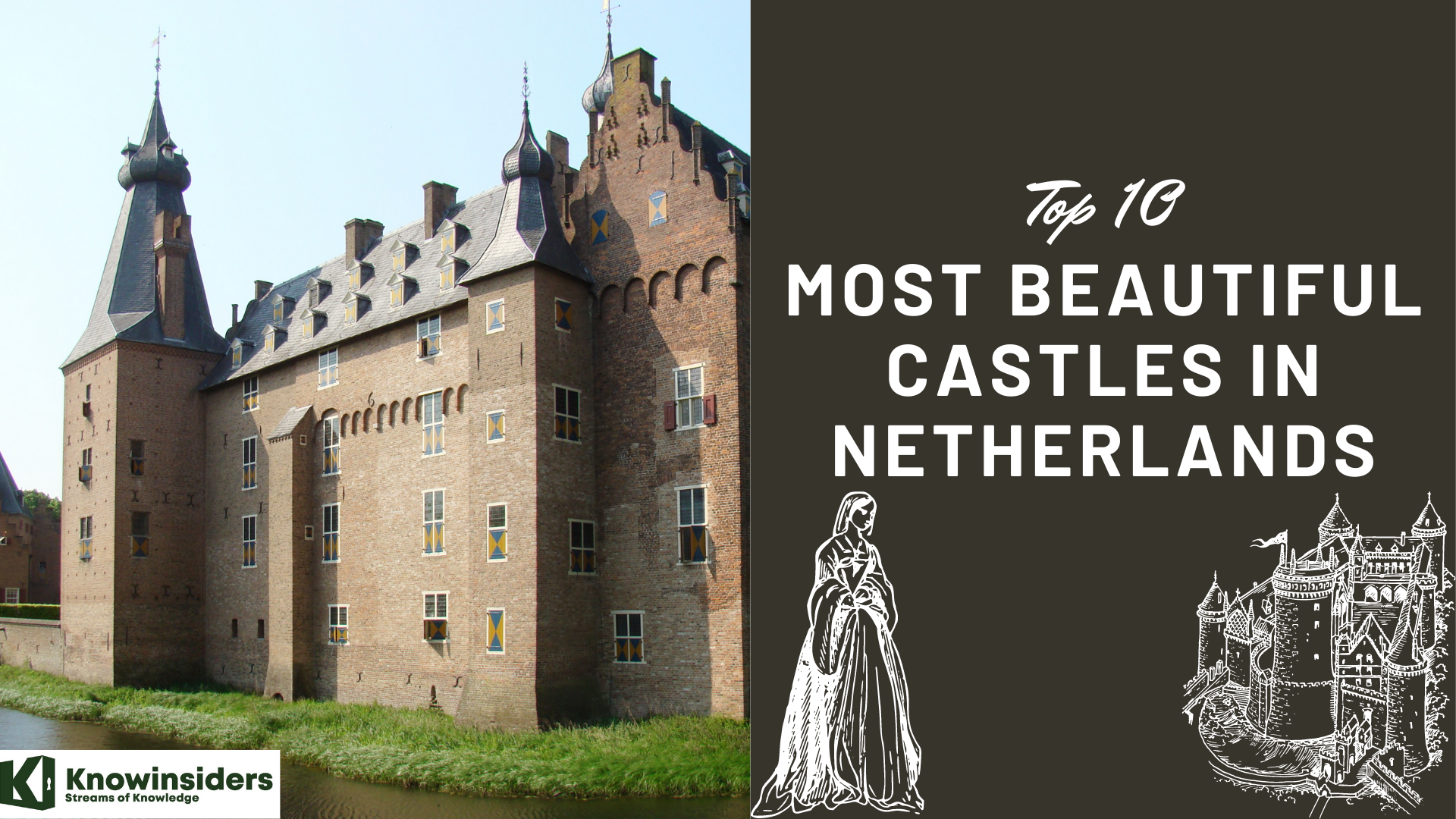 Top 10 Most Beautiful Castles in Netherlands Top 10 Most Beautiful Castles in Netherlands If you ever have time to visit Netherlands, dont forget to see these 10 most beautiful castles in Netherlands in the article below. |
 What is The Australian National Anthem: Full Lyrics and Hisrory What is The Australian National Anthem: Full Lyrics and Hisrory Check out the "Advance Australia Fair" - Full lyrics, lyrics video, history of Australia National Anthem in the article below. |




